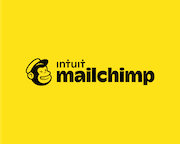Boost your email productivity with the best email tracking software! Our buyer's guide simplifies your search for the perfect tool. Read now and make an informed choice.
Are you looking to improve your email marketing performance and optimize your outreach strategy? If so, then investing in an email tracking software could be the answer you've been searching for. With the right email tracking tool in place, you can easily monitor your email campaigns' success rate and understand how your recipients are engaging with your messages.
Whether you're a small business owner, a marketer, or a sales representative, this solution can help you optimize your email outreach efforts and ultimately improve your bottom line. However, with a wide range of options available on the market, it can be challenging to determine which solution is the best fit for your specific needs. In this guide, we'll walk you through the key features and benefits and provide you with the insights you need to make an informed buying decision.
What is an email tracking software
This is a tool that helps individuals and organizations increase their email productivity by providing insights into how their emails are being received by recipients. It enables senders to track the opens, clicks, and replies of their emails to recipients. It also helps users make informed decisions regarding their email communications.
Common use cases for this solution include:
-
Sales: Sales representatives use it to track opens and clicks on emails, which allows them to follow up in a timely manner when a lead is showing interest.
-
Marketing: In marketing, this solution allows marketers to analyze the performance of email campaigns by tracking open and click rates. They can optimize their email content and send more targeted emails to improve success rates. According to a Princeton University study, 70% of tested emails “contain resources categorized as trackers by popular tracking-protection lists”.
-
Customer support: It can help customer support teams monitor how customers interact with their email communications. This helps teams identify areas where improvement is needed and provide better customer support.
-
Freelancers: Freelancers who use a tracking tool can keep track of where their proposals or invoices are in the process, and follow up accordingly to ensure timely payment.
Companies of all sizes and industries can use this technology, especially effective for companies that frequently send out emails to customers and prospects, such as sales, marketing, and customer success departments. Startups and small businesses can use it to gain valuable insights into their email communications, while larger businesses can use it to manage their workflows and improve productivity across teams.
What are the advantages of buying an email tracking program?
Email tracking technology is a boon for businesses of all sizes, especially those with a large number of daily email exchanges. It provides a range of benefits that can streamline email communication, increase productivity, and improve customer engagement.
Here are the main benefits:
-
Tracking delivery: One of the key features is the ability to track the delivery of an email. This feature provides real-time tracking information such as when the email was delivered, opened, clicked, or forwarded.
-
Analyzing email engagement: The software also allows analyzing email engagement, providing insights into the effectiveness of an email, such as open rates, click-through rates, and response rates.
-
Identify opportunities: With an email tracking platform, businesses can identify specific opportunities, such as when to follow up or when to pitch a new product or service to a client.
-
Improve productivity: With the data it provides, the sales team can analyze customer engagement and improve their productivity by focusing on what works best.
-
Streamline communication: It can help streamline communication by providing automated follow-up reminders, scheduling, and personalized templates, making communication more efficient and effective.
-
Increase customer engagement: It can improve customer engagement by enabling businesses to tailor their communication based on previous engagements and interests.
-
Generate more revenue: By enabling businesses to identify and engage with their most interested prospects, this tool can increase the likelihood of generating more revenue and growth opportunities.
10 key features of email tracking software
This a powerful tool that has become an essential part of every company's marketing strategy. It allows businesses to track the performance of their email campaigns and gain valuable insights into the behavior of their customers. Here are its 10 common features:
-
Open tracking: This feature allows you to track when a recipient opens your email. This data provides insights into the effectiveness of your subject lines and helps you identify your most engaged audience.
-
Click tracking: With click tracking, you can track when a recipient clicks on links within your email. This helps you understand what content is resonating with your audience and which links are driving the most traffic to your website.
-
Reply tracking: Reply tracking enables you to see when a recipient responds to your email. This information is critical in determining the effectiveness of your messaging and helps you identify which campaigns are generating the most positive responses.
-
Bounce tracking: Bounce tracking helps you identify when your emails are not successfully delivered to their intended recipient. By monitoring bounces, you can identify issues with your email list and take corrective action.
-
Unsubscribe tracking: This feature enables you to track when a recipient unsubscribes from your emails. This helps you understand why people are choosing to unsubscribe and identify areas where you can improve your messaging or targeting.
-
A/B testing: A/B testing allows you to test different versions of your email campaigns to determine which one performs better. You can test different subject lines, content, and calls to action to optimize your campaigns.
-
Segmentation: Email tracking software allows you to segment your email list based on specific criteria such as demographics or behavior. This enables you to send targeted messages to specific groups or individuals, increasing the relevance and effectiveness of your campaigns. A study from One More Company (OMC) indicated that 40,6% of the 1,5B+ emails checked contained a tracking solution, displaying the importance of this tool.
-
Automation: With automation, you can set up triggers to automatically send emails based on certain actions or behaviors. This saves time and ensures that your messaging is timely and relevant.
-
Analytics: It provides detailed analytics and reporting, allowing you to track the performance of your campaigns over time. This data can be used to identify trends, optimize your messaging, and demonstrate ROI to stakeholders.
-
Integration: Many email tracking platforms integrate with other marketing tools such as CRM systems, social media platforms, and landing page builders. This enables you to streamline your marketing efforts and create a seamless experience for your customers.
Email tracking software is a powerful tool that provides valuable insights into the effectiveness of your email campaigns. By leveraging the features of this program, businesses can optimize their messaging, improve targeting, and increase ROI.
Things to consider when purchasing an email tracking system
With a wide range of tracking software options on the market, choosing the right one can be a daunting task for businesses. In this section, we will discuss some of the key factors that businesses should consider when buying.
Tracking capabilities
The primary function of this technology is to track the performance of email campaigns. Therefore, it's important to choose one that offers detailed tracking capabilities and can track email opens, clicks, bounces, and conversions. In addition, some of them can track user behavior on your website after they click on your email, giving you a more complete picture of their journey.
Integration
Your tracking tool should integrate smoothly with the other tools in your tech stack. Consider one that can integrate with your email marketing platform, CRM, and marketing automation tools. This will ensure that you can use it to its full potential and streamline your communication processes.
Reporting and analytics
It generates a lot of data, so it's important to choose one that can present this data in a clear and actionable way. Look for one that provides comprehensive reports and dashboards with visual representations of the data. It should be easy to filter and export data so you can share it with your team or import it into other tools.
User interface and ease of use
Another important factor to consider is the software's user interface and ease of use. Your team will be interacting with the app daily, so it should be easy to navigate and use. Look for one that has a clean and intuitive interface, with features that are easy to access and use.
Security and privacy
Emails can contain sensitive information, so it's important to choose a solution that prioritizes data privacy and security. Look for one that offers encryption, secure data storage, and protection against data breaches.
Customer support
Lastly, consider the quality of the software's customer support. You may encounter issues or have questions, and it's essential to have a responsive support team that can help you quickly and effectively. Look for one that offers multiple support channels, such as email, phone, and chat, and has a good reputation for customer service.
Choosing the right email tracking software can have a significant impact on your business's communication strategy and performance. By considering the factors outlined in this article, you can make an informed decision that aligns with your business's needs and goals.
Market trends for email tracking software
The world of email tracking technology is constantly changing, with new trends and innovations emerging each year. As we move further into 2024 and beyond, here are some of the biggest trends to watch out for:
-
Advanced email analytics: As businesses increasingly rely on email campaigns for their marketing and sales outreach, it is not enough to simply track opens and clicks. Advanced email analytics tools like EmailAnalytics and Mixmax allow businesses to dig deeper into their email data, analyzing metrics like reply rates, conversion rates, and even sentiment analysis.
-
AI-powered writing assistance: Email tracking tools like Lavender and Mixmax are now incorporating AI-powered writing assistance that can help businesses craft more effective emails. These tools offer real-time tone and readability checking, as well as suggestions for subject lines, email body text, and even follow-up messages.
-
Integration with CRM and marketing platforms: Email tracking is just one piece of the larger puzzle of a business's marketing and sales strategy. That's why tools like Hubspot and Yesware offer email tracking as part of their broader CRM and marketing platforms. This integration allows businesses to track the entire customer journey, from initial outreach to conversion and beyond.
-
Improved data privacy and security: With data privacy and security becoming an increasingly important concern for businesses and consumers alike, email tracking tools are stepping up their game to ensure that user data is kept safe and secure. Look for features like GDPR compliance, end-to-end encryption, and two-factor authentication to become more commonplace in a tracking system in the coming years.
Conclusion
Keeping up with emerging trends in email tracking software is crucial for staying ahead in the competitive landscape of digital marketing. By embracing the latest tools and strategies, businesses can enhance the effectiveness of their email campaigns, optimize engagement, and ultimately achieve better results. Continuous adaptation to evolving technologies and consumer behaviors ensures that companies remain relevant and competitive in the ever-changing landscape of email marketing.









